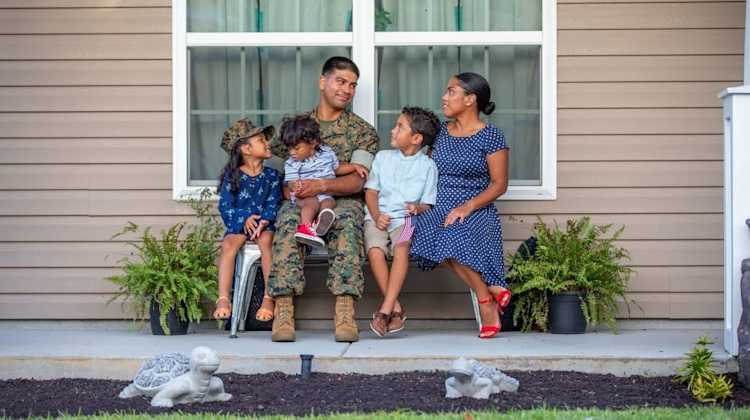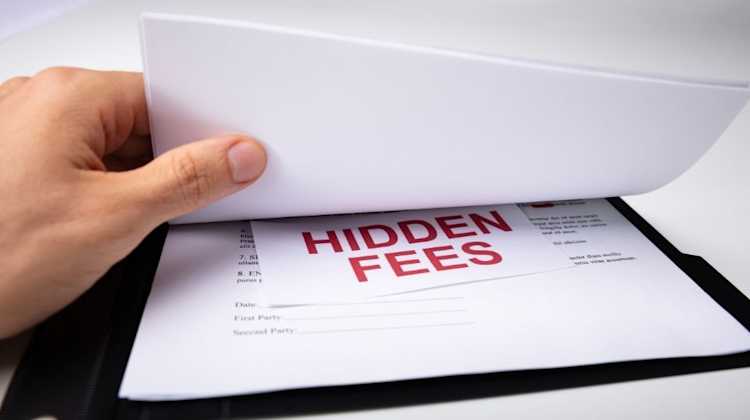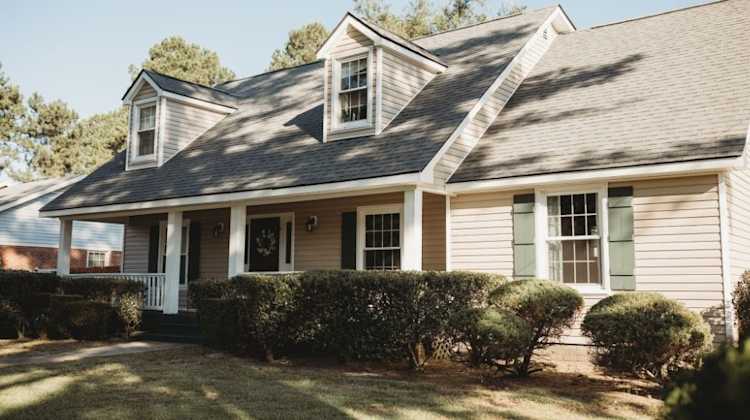Military Real Estate: Closing Costs for Buyers and Sellers
by Becca Stewart - April 20th, 2022

Military families are on the move again! If you are buying or selling a home (or both), be prepared to bring a hefty chunk of change to the closing table. We’re breaking down the closing costs for buyers and sellers, making your move a little smoother.
Pro-tip: Working with a military-friendly real estate agent or mortgage broker can make this process much more manageable. Join PCSgrades for FREE to find trusted real estate agents and lenders. You can also access housing reviews, military base area guides, PCS tips, and more!
There are always closing costs for buyers and sellers
Here’s the bottom line up front: there are always closing costs for buyers and sellers, even if you have a “no closing cost” or “no money down” loan. And yes, this includes purchasing a home with a VA loan.
Closing a real estate deal is a lengthy and sometimes complicated process. The home buying and selling puzzle has many pieces: Mortgage lenders and other financial institutions, title companies, real estate agents, home inspectors, home insurance companies, and many more.
This complex process isn’t free. Whether you are the buyer or the seller, you can expect to pay closing costs. Working with a military-friendly lender or real estate agent can help you better understand your options and have a clearer picture of the closing process.
What are closing costs?
What are closing costs, anyway? If you’re new to homeownership, you might not be familiar with this term. Closing costs are simply the fees associated with buying or selling a home, securing a mortgage, and/or transferring the property to another owner.
We call these fees “closing costs” because they are due on the day of closing (the day you sign all paperwork and the home sale is finalized).
Typically, closing costs will be about 3-6% of the home’s purchase price for buyers and 6-10% for sellers. Both the buyer and the seller will have closing costs.
Closing costs for sellers
As the home seller, you are usually responsible for covering all expenses related to preparing and selling the property. The most significant cost comes from paying the real estate agents involved in the transaction – both the buyer’s and seller’s agents. If both agents charge a 3% commission (an average rate), you will pay 6% of the home’s purchase price in real estate commissions alone.
The seller is also responsible for:
Real estate title transfer taxes and fees
Title insurance
Escrow and closing fees
Property taxes and HOA fees, if applicable
In some cases, the seller might also pay a portion of the buyer’s closing costs and/or offer concessions or allowances for necessary repairs on the home. This is uncommon in the current market as buyer competition is fierce, meaning buyers aren’t asking for sellers to pay any additional fees.
As long as you are making a profit on the sale of your home, you will not need to bring money to closing. All fees will be taken directly from the proceeds.
Closing costs for buyers
As the home buyer, you are responsible for several closing costs. First, there are all the fees associated with applying for a mortgage, getting that loan approved, and the underwriting process. In addition, you will pay legal fees, government fees, taxes, and expenses associated with inspecting and appraising the property.
Typical closing costs for buyers include:
Loan origination fee and application fees
Appraisal fee
Home inspection, including wood-destroying insects and pests (in some states)
Homeowner’s insurance costs
Attorney fees
Prepaid interest
Mortgage broker fees (if applicable)
Title search and transfer fees
Before closing, you will receive a closing disclosure indicating the total amount you need to bring to closing (typically about 3-6% of the purchase price). This is called your “cash to close.” You will need to do a wire transfer or bring a certified check or cashier’s check to closing, depending on your lender’s request. Your down payment (if applicable) will be collected at closing as well.
Buyers can negotiate and reduce some of these fees. Which closing costs can you negotiate? Check out this article for more information.
Are there closing costs on a VA loan?
Military home buyers often consider using their VA loan benefits. A VA loan is a great option with many advantages (read all about them here). Since VA loans do not require a down payment, nor do they require private mortgage insurance, these loans make it easier for military families to buy a home.
However, even if you’re putting zero down, there are still plenty of closing costs on a VA loan. In addition to the buyer’s closing costs listed above, the VA loan requires borrowers to pay a one-time funding fee. Find out more on the VA website.
In some cases, lenders will roll these costs into your home loan, which we discuss below.
Want to learn more about VA loans? Find an experienced military-friendly lender who can answer all your questions! Click here to get started for FREE.
“No closing costs” VA loan and conventional loans: Do you still need to bring money to closing?
Some lenders offer their clients a “no closing costs” loan. But as the saying goes, there’s no such thing as a free lunch.
A no closing costs loan does not mean those fees magically disappear. Instead, the lender will recoup these costs in one of two ways:
Closing costs will be rolled into your mortgage loan, meaning you will owe the total value of your mortgage plus the closing costs. You will also pay interest on the closing costs for the life of your loan.
The lender will “cover” your closing costs, but will charge you a higher interest rate in exchange. The lender could also include a prepayment penalty, meaning you will have to pay a steep fee if you refinance or pay off your mortgage before the repayment term ends.
In essence, a no closing costs loan means you won’t bring a check to closing, but you will be paying off those closing costs over the life of your mortgage. Additionally, the lender might not cover all applicable closing costs. You may still be on the hook for government fees, taxes, insurance, and other expenses. A week or two before closing, your lender will give you a detailed account of what you owe at closing, if anything.
A no closing costs loan can be a viable option for those who do not have cash on hand to cover all the fees due at closing. A PCS can be costly enough as it is. Adding closing costs on top of PCS expenses can create financial hardship for military families. If you don’t have the necessary financial capital, rolling closing costs into your mortgage might be the best option.
However, those who have the financial ability to cover closing costs up front should consider doing so. While you will pay a larger sum at the closing table, you won’t pay interest on those closing costs over the life of your loan.
Working with a military real estate agent or mortgage lender
Military families face unique challenges when it comes to home buying and selling. Because we move so frequently, we must take special financial and tax considerations into account. It’s vital to work with a mortgage lender who is well-versed in the military lifestyle and who understands every lending program available to military members. Search vetted, experienced, military-friendly lenders via the PCSgrades network here.
A military-friendly real estate agent can also make a huge difference in your home buying or selling experience. Military real estate agents know what your family is going through. They have the expertise to help your family buy a home sight-unseen, sell a home while you’re stationed overseas, and handle many other challenges that our families face.
If you need a military-friendly real estate agent, PCSgrades has you covered. Our extensive network of service-minded real estate agents can help your family make your next move as smooth as possible. Military families can also get $350 - $7,500 cash back when they work with a PCSgrades-affiliated real estate agent (where allowed by law). Find your military-friendly real estate agent here!








